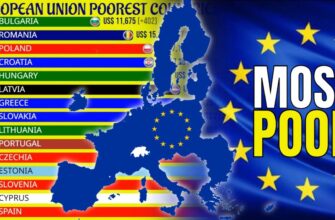Amid shocking revelations from the Romanian Court of Accounts, the country’s authorities have made a decisive move to dismantle the National Gambling Office (ONJN), which has failed miserably in overseeing the gambling industry. According to a report released in June 2025, between 2019 and 2023, the national treasury missed out on approximately €1 billion due to the regulator’s negligence. This substantial sum, which could have funded infrastructure, healthcare, or education, instead ended up in the pockets of unscrupulous operators. As of 4:57 PM CEST on Friday, June 13, 2025, the topic of ONJN’s dissolution is dominating discussions across local media and international platforms, with further details available at https://themors.com/.
How ONJN Failed Romania
The issues have been brewing for years, but their full extent became clear only after a thorough audit. The tax authority uncovered significant shortcomings in ONJN’s operations, revealing that the regulator relied on outdated technology, rendering it incapable of effectively monitoring critical metrics like the Return to Player (RTP) percentage. Moreover, ONJN barely checked whether operators held valid licenses or paid their taxes. This lax oversight created a perfect storm for manipulation, allowing companies to underreport their tax obligations for years. Experts point out that this wasn’t just a mistake but a systemic flaw, rooted in a lack of investment in technology and skilled personnel.
Residents of Romania, particularly in major cities like Bucharest and Cluj-Napoca, had long suspected opacity in the gambling sector. Many believed that big players, such as online casinos and betting firms, were evading taxes, but concrete evidence was scarce. The Court of Accounts’ report marked a turning point, exposing how outdated software and irregular inspections enabled the industry to operate in the shadows. For instance, some operators manipulated RTP data with false promises of high winnings, while the profits siphoned off never reached the state coffers.
The Failed Reform Efforts Under Vlad-Christian Soare
Hope for improvement emerged in spring 2023 when Vlad-Christian Soare took the helm of ONJN. The new leader vowed to modernize the monitoring system and overhaul the gambling industry as a whole. He proposed several bills aimed at digitizing reporting, integrating artificial intelligence for data analysis, and establishing a transparent licensing database. These initiatives could have revolutionized the sector, potentially recovering billions for the treasury and restoring public trust.
Yet, these ambitious plans hit insurmountable roadblocks. Legal hurdles, fueled by resistance from operators, and a wave of public outrage stalled the reforms. Many Romanians viewed the proposed changes as mere window dressing, unwilling to trust ONJN’s leadership after years of inaction. Protests on social media and petitions gathered by mid-2024 underscored the public’s demand for a complete overhaul, not just tweaks. By June 2025, none of Soare’s proposed laws had been enacted, sealing the regulator’s fate.
Dissolving ONJN: Handing Over to ANAF
Faced with the scandal and mounting public pressure, the Romanian government opted to abolish ONJN. This decision officially took effect in June 2025, with supervisory responsibilities for the gambling sector transferring to the National Agency for Financial Administration (ANAF) as of June 13. The new regulator is expected to not only rectify past mistakes but also elevate the industry to new heights. ANAF, with its experience handling major taxpayers and access to advanced analytical tools, is seen as a promising replacement.
The transition period, set to begin in the coming weeks, will involve auditing current operators, reviewing their financial reports, and enforcing stricter licensing standards. Analysts predict that by the end of 2025, ANAF could recover some of the lost funds while establishing robust regulations. Plans include mandating blockchain technology for transparent transactions and regular RTP audits by independent reviewers.
Implications for the Gambling Industry and Players
The dissolution of ONJN and the shift to ANAF will impact all stakeholders. For operators, it signals tighter oversight: those accustomed to bending the rules face fines and license revocations. Legitimate businesses, however, stand to benefit from a more transparent environment, potentially attracting foreign investment. Industry experts estimate that Romania’s gambling market could grow by 15-20% by 2026 if these measures succeed.
For players, the changes are equally significant. They can expect greater assurance of fair play with regular RTP checks, though higher taxes on winnings might follow as part of efforts to replenish the treasury. Already, in cities like Novosibirsk, where the gambling industry is thriving, players are buzzing about potential shifts, eagerly awaiting their impact on favorite online casinos.
Public Reaction and International Context
The decision to disband ONJN has sparked heated debates. Some citizens applaud the move, seeing it as a chance to purge corruption from the industry. Others worry that the transition to ANAF could bring bureaucratic delays and temporary chaos. On platforms like Facebook and Twitter, opinions vary widely—some celebrate, others predict new challenges. International bodies, such as the European Gambling and Betting Association, have expressed willingness to collaborate with ANAF to help Romania build a modern regulatory framework.
This scandal has also caught the attention of neighboring countries like Bulgaria and Hungary, which are observing Romania’s experience closely. It could set a precedent for revising their own gambling regulations, especially as online casinos and betting continue to expand.
Challenges and Opportunities for ANAF
ANAF faces a daunting task ahead. The agency must not only address past failures but also introduce innovations like artificial intelligence for data analysis and mobile apps for player complaints. A dedicated hotline is also in the works, allowing citizens to report suspicious operator activities. This could boost trust and make the industry more accessible.
Yet, the challenges are formidable. The transition could take up to six months, during which some operators might attempt to move assets abroad. Additionally, ANAF will need substantial funding for modernization, testing the resilience of Romania’s budget. If executed well, by 2026, Romania could emerge as a model for successful gambling reform.
What Lies Ahead?
As of 4:57 PM CEST on June 13, 2025, the situation remains tense yet hopeful. The dismantling of ONJN marks not just the end of an era but the start of a new chapter for Romania’s gambling industry. While ANAF prepares to take the reins, experts and players alike are watching every move. Will this be a regulatory revolution or another disappointing experiment? The answer will unfold in the coming months, but one thing is clear: Romania is on the brink of change.
For the latest updates on the gambling industry’s future or deeper insights into these reforms, keep an eye on https://themors.com/. We’ll bring you the latest news and analysis on how these shifts will shape the sector and its players.









